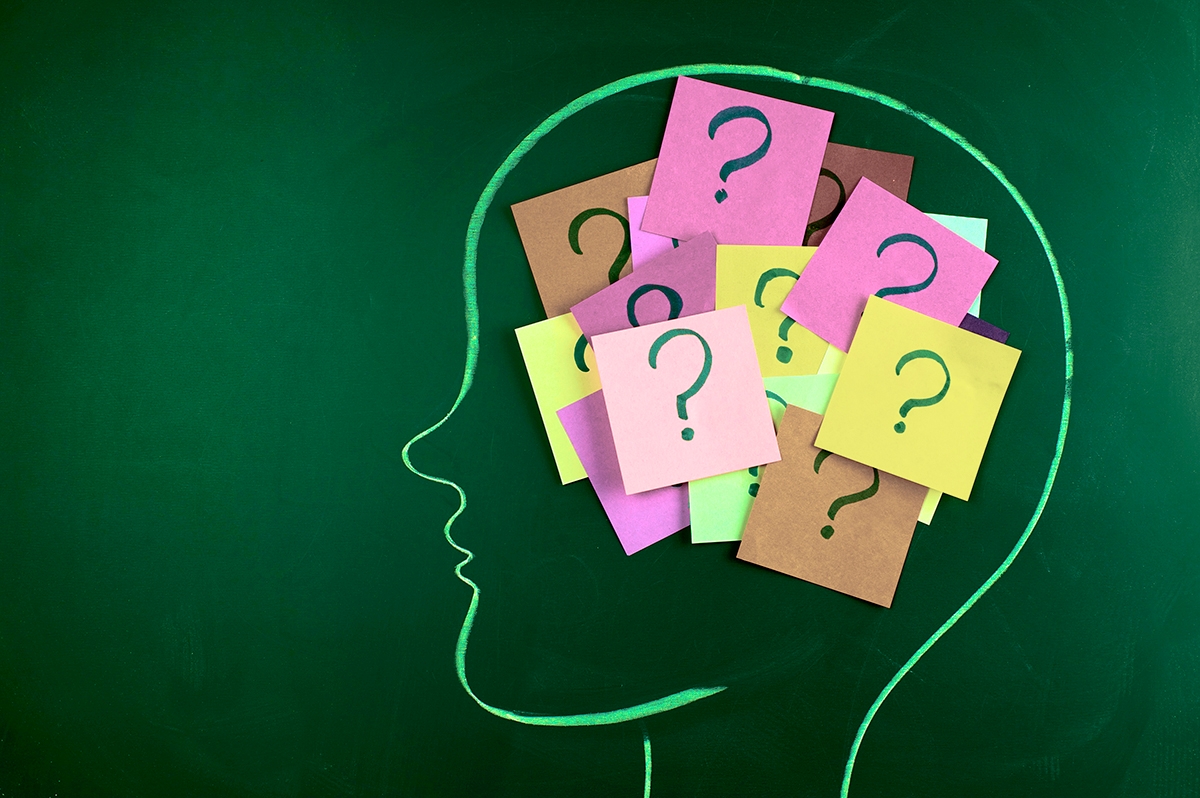Did you ever wonder why questions are so central to the Passover seder? They first appear as part of the iconic Four Questions, which are traditionally asked by the youngest seated around the table. Of course, this set of questions is a great way to keep the kids engaged early on in the seder, and to make sure they know Passover seder cuisine basics— matzah instead of bread, maror (bitter herbs) instead of broccoli.
Questions are asked again in the haggadah when we get to the Four Children, each of whom is connected to a question. The Wise One asks, “What are all these statutes and laws…?” The Simple One asks simply, “What is this?” Then, by the seder’s end, we have “Echad mi Yodea?” (“Who Knows One?”) the counting game-in-song that affirms the centrality of God in the Passover narrative.
Questions aren’t just a pedagogical tool to engage seder participants in this evening of storytelling; questions are at the very heart of the Passover experience. Questions are the literary mode through which the message of freedom and liberation is conveyed. Questions open up possibilities; they convey that things can be different.
When we ask questions on seder night, we are exercising freedom. Just as an outstretched arm rescued the ancient Israelites from bondage, so, too, can open and generous questions wrest us from dead-end communication. After all, generous questions invite generous answers. “We all have it in us to formulate questions that invite honesty, dignity, and revelation,” Krista Tippett writes in her book, Becoming Wise. “There is something redemptive and life-giving about asking a better question.”
Questions are important but there are also different kinds of questions. There are the ones that we use as fillers like, “How are you?” and “How was your day?” — quite often, people ask this and never even wait for a response. There are also closed questions, which can be statements masquerading as questions. As a mother of three, I am well versed in these. Sometimes I ask, “Why did you do that?” But what I’m really conveying is, “This is completely not what I expected!” My kids can ask closed questions too, like, “What were you thinking?” or “How could you?!”
When the environment is right — and when we are not rushing off to anywhere — I think about the questions I want to ask my kids that will help me explore the inner contours of their worlds. Open questions that begin with “how” or “what” or “I was wondering about” lead me down a path in which I enter a mode of more understanding and less directing.
Saturday night, March 27, marks the beginning of Passover, a holiday set in springtime with the promise of renewal it invites. As such, I am thinking about the kinds of questions I want to ask around my seder table to bring us into that spirit. While so many of us are feeling deep exhaustion after a year of pandemic parenting — and the idea of renewal feels like a distant dream — seder night can be a wake-up call. The haggadah relates, “Everyone who expands upon re- telling the story of the Exodus from Egypt is praiseworthy.” The Passover story is not only about a historical event that happened in the distant past in a physical location called Mitzrayim, or Egypt. Mitzrayim is an archetype for any narrow or constricted space (Mitzrayim has within it the word, tzar, or “narrow.”) When we sit down to tell the story of leaving Egypt, we are also telling the story of leaving our mitzrayim, our narrow places. And we can only begin to tell those stories if the questions posed feel generous enough to invite our honest answers.
As my family sits down with ten other guests (all adults will be vaccinated!) around our seder table in Jerusalem this Saturday night, we will move through the haggadah and the traditional Four Questions that our youngest kids will ask. We will then pass around a glass bowl and in it little pieces of paper with questions that invite more personal exploration for children and adults alike. These questions will include ones like:
- What gave you strength when you are having a hard time this year? (Or for kids: “What helped you when you were down?”)
- Who did you notice needed extra love this year? How did you help them?
- What is a piece of advice you would want to receive from an elder in your life to give you some perspective? (Or for kids: “What is a story that a grandparent has told you that you love to hear?”)
- What is a hope or dream that you have for yourself? (Or for kids: “What is something you want to do that you have never tried before?”)
Each question holds the potential to connect us to our inner wisdom and points of resilience, to the people around us, and to the possibility that there is something new we can explore. Some guests might want to sit with these questions for a bit and only share their responses later on in the seder. Others will want to share their reflections right away. Invite everyone physically present (or on Zoom!), whether young or old, to share their thoughts.
My hope is that by asking these kinds of open-ended questions on seder night we can begin to move out of the confines and narrow places we have been in. By asking generous questions — and listening to their answers — may we all move into a space in which we can breathe a bit deeper and toward whatever comes next.
Header image by yangwenshuang/Getty Images








